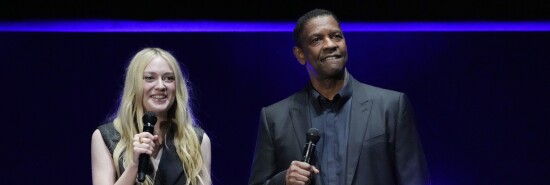
The Equalizer 3 is a fitting conclusion to the action trilogy
Harry Khachatrian
Video Embed
Through crime classics such as Goodfellas or The Godfather, we’ve often come to romanticize mobsters for their wise guy, wanton indifference to the law, often overlooking the less glamorous ramifications of their escapades. Director Antoine Fuqua’s finale to the Equalizer trilogy, however, offers no such glamour, instead labeling their debauchery as a cancer.
Reprising his role as Robert McCall, Denzel Washington portrays the demure and dangerous retiree continuing his altruistic pursuit of vigilante justice. “Are you a good man?” asks a weary doctor after treating McCall for a wound at the start of the film. It’s a question he has grappled with throughout the Equalizer franchise, consistently striving (unsuccessfully, to the benefit of our entertainment) to leave his violent past behind and better his community; the latter often seems to necessitate reverting back to the former.
Having bested the local Russian mob, busted its prostitution rings, and taken down his corrupt ex-colleagues in Boston over the first two films, McCall jets off to the idyllic Amalfi Coast for a fitting farewell in Equalizer 3.
What had initially been planned as a brief trip to Sicily to wipe out a small army of local mobsters turns into an extended and indefinite stay along a small Italian coastline city as the warmth and gregariousness of the locals captivates the hardened ex-mercenary.
For the first time since losing his wife, McCall feels a sense of belonging; he has the chance to shed his loner vigilantism for the sake of a new family. His new relationships can be awkwardly formed, though: In what easily stands out as the most bizarre scene of the film, a cafe waitress and presumed local, flirting with McCall in Italian, asks to show him the true culinary offerings of her Amalfi Italian coastal town and proceeds to take McCall to a kebab stand.
Nonetheless, the film’s sundry sweeping shots of the sandy shoreline and old stone architecture strewn throughout the mountains on the coast make it easy to see why McCall is too enamored by his surroundings to question his date’s perception of local cuisine.
It is for this reason that upon feeling the pangs of the Southern Italian mob terrorizing his newfound home, McCall channels the narrative of The Seven Samurai — only without the help of the other six, making it marginally closer to an even fight. The film makes sure to stress the mafia’s cruelty. In one scene, the mob boss throws a haggard grandfather in his wheelchair out an apartment window, hanging him in the courtyard as punishment for the owner’s refusal to sell the building for the mob’s planned hotel.
When faced with unnerving hotel and resort developers, Joni Mitchell wrote her ubiquitous “Big Yellow Taxi” ballad, lamenting the paving of paradise and putting up a parking lot. McCall, conversely, decided violence was a far more effective approach than songwriting.
CLICK HERE TO READ MORE FROM THE WASHINGTON EXAMINER
Though the plot occasionally meanders, unnecessarily tacking on a half-baked side story about the CIA and a jihadi terrorist cell tied to the mafia, at its core it is consistent with the Equalizer ethos: put politely, the more you mess around, the more you’re going to find out.
Denzel Washington’s disarming charm and charisma invariably carry the film. As early as the first scene, seemingly trapped between two armed assailants to his sides and another in front, he immediately notices one of their firearms quavering too closely, killing all three within nine seconds. But not before offering them the opportunity to change their course. After all, while The Equalizer may grapple with whether he’s a “good” man, there’s no doubt he’s a fair one.
Harry Khachatrian (@Harry1T6) is a film critic for the Washington Examiner’s Beltway Confidential blog and a computer engineer in Toronto, pursuing his MBA.
